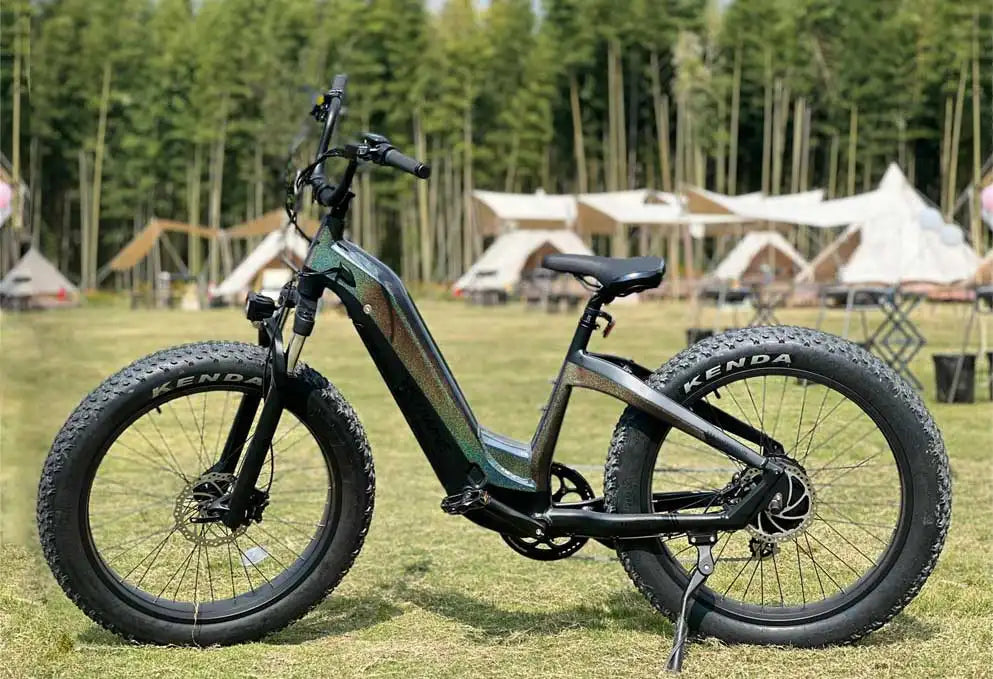
What Are the Benefits of Buying a Bicycle with Hydraulic Brakes?
What is a bicycle with hydraulic brakes? A bicycle using hydraulic brakes is a bicycle that utilizes hydraulic pressure to apply braking force to the wheel. Commonly seen in downhill mountain biking, they give the rider better control over their speed and are more efficient than mechanical brakes. The first hydraulic mountain bike disc brake was created in 1987 when it was still called Formula. They work by pressing a lever that moves a piston rod, which forces oil into an area of high pressure outside the piston.
What are the benefits of buying a bicycle with hydraulic brakes?
Below are the benefits of having a bicycle with hydraulic brakes on it:
1. Suitable for all surfaces and weather conditions:
Bicycles with hydraulic brakes are self-adjusting, meaning they will work well on different surfaces without fail. They also work effectively in many weather conditions, and the fluid inside will not freeze if the bike is ridden in snow. The bike can still be ridden even if it is raining.
2. Less effort needed during riding:
Hydraulic brakes do not require much effort to be applied, unlike mechanical or rim brakes, which need lots of hand strength to brake effectively, especially when using them for downhill biking. Riding a bike with hydraulic brakes does not require much effort since all you need to do is just press down on the lever and wait till you reach your desired speed before letting go of the lever.
3. More efficient braking force:
Hydraulic brakes are more efficient than mechanical or rim brakes. This is because of the pressure supplied by the hydraulic fluid, which reduces the amount of effort needed to make the bike come to a complete stop. The fluid cannot leak and can be used repeatedly without much trouble. If there is a system failure, it would only affect that particular brake and not both at one time.
4. Low maintenance required:
Self-adjusting hydraulic brakes do not require much maintenance, unlike mechanical or rim brakes, which need constant adjustments since their position may change depending on temperature changes or hand strength power applied during riding.
5. Excellent braking control:
Hydraulic brakes offer listeners much more control over their braking than mechanical or rim brakes. With more control, riders can stop their bike more quickly and control the rate of descent at higher speeds.
6. More responsive to the rider:
Hydraulic brakes are easier to apply and offer greater sensitivity to the rider's position than mechanical or rim brakes. This is because they have an unlimited number of sensitivity settings, ranging from having no brake applied down in "lockup" mode to make it easier to apply the brake in dynamic conditions.
7. Greater directional control:
Hydraulic brakes have greater directional control over the bike's suspension, meaning the bike can be oriented at a greater angle to the direction of travel. This means riders can go downhill faster and give more precise steering during turns.
8. Braking power is felt instantly:
Once applied, the brake is done immediately and has no chance to waste fluid like other systems. Having hydraulic brakes allows people to brake virtually all times of day, which could benefit bikers with varying schedules since they are activated so quickly.
Although hydraulic systems are not as powerful as mechanical or rim brakes, they allow bikers to stop their bikes quicker than these systems. They also make bikes more efficient and affordable during regular riding, which has helped to popularize mountain biking as a recreational sport among people of all ages.
9. The control of speed:
With hydraulic brakes, a rider can control the speed he wants his bike to go when braking. This means that he can slow down if necessary to avoid hitting something or accelerate at a slower rate to maintain his momentum and not lose any speed after coming to a complete stop.
10. Cost-effective:
Hydraulic brakes have a higher maintenance cost, but it's worth it. If you're a rider who loves to explore steeper terrain, a greater caliper piston count can provide powerful braking power for a more extreme experience and better safety.
11. Flexibility:
Hydraulic brakes can easily adapt to different weather conditions with more adaptability and sensitivity. The fluid will not freeze during freezing temperatures, so the bike can be used even when it is snowing.
Conclusion
With all of these benefits, a bicycle with hydraulic brakes is a great option for those looking to ride their bikes more often. It is more applicable for outdoor use and offers more efficient stopping power than other braking systems. The rider can control his bike's speed and the direction he wants it to go with more precision than mechanical or rim brakes, making them easier to use. Grace, except for hydraulic brake performance Max Torque 80NM,65+ Miles by Pedal, and 40+ Miles by Throttle, battery life is powerful. Learn more…
